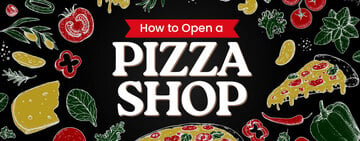The main differences between parmesan and Parmigiano-Reggiano are their aging processes and how their ingredients are regulated. For a cheese to be classified as Parmigiano-Reggiano, it must come from particular regions of Italy and contain only certain approved ingredients. Parmigiano-Reggiano is also aged at least 1 year and up to 3 years. Parmesan, on the other hand, is not regulated and may be aged as little as 10 months. Whether you're trying to find the best cheese for pizza or making a signature pasta dish, it's important to know what makes each cheese unique. We'll break down the differences below.
Shop All Parmesan CheeseWhat Is Parmesan?
Parmesan cheese is a hard and granular cheese that originated in Italy. It is highly regarded for its umami-rich flavor and ability to enhance the taste of a wide variety of dishes. It is commonly used in Italian cuisine, grated over pasta dishes, risottos, and salads, or served in chunks alongside fruits and nuts as a delicious appetizer. One of the most popular forms of parmesan is in granular varieties that can be sprinkled over dishes. Parmesan cheese is also a key ingredient in popular dishes such as Caesar salad, risotto alla Milanese, and eggplant Parmesan.
How Is Parmesan Cheese Made?
Made from unpasteurized cow's milk, Parmesan is aged for at least 10 months, resulting in a sharp and nutty flavor profile. Here is a basic process cheesemakers follow:

- Fresh cow’s milk is allowed to sit until the cream rises to the top.
- The cream is skimmed off the top, and the remaining milk is combined with whole milk.
- Rennet (an enzyme that naturally occurs in calves) is added to produce soft curds.
- The curds cook until they settle together at the bottom of the cooking vessel.
- The mass made from the curds is raised out of the liquid, cut, and put into wheel molds.
- The wheels then soak in a brining solution for anywhere from 20-25 days.
- After brining, the wheels sit in a maturing room for a minimum of 10 months.
- Once fully aged, the cheese will be prepared for retail.
What Does Parmesan Taste Like?
Parmesan cheese boasts a rich and nutty flavor profile that is both savory and slightly salty. Its dense texture offers a satisfying crunch when grated over dishes, while its aged complexity adds depth to a wide range of culinary creations. Parmesan's distinct taste is characterized by sharp, tangy notes, making it a versatile ingredient that enhances the flavors of pasta sauce, salads, and soups.
What Is Parmigiano Reggiano?

Parmigiano-Reggiano, often referred to as the "King of Cheeses," is a hard Italian cheese made with a protected recipe. This cow's milk cheese is a DOP product, which stands for Denominazione di Origine Protetta or Protected Designation of Origin. The DOP laws determine exactly where Parmigiano-Reggiano has to be made and where its ingredients originate to be given the classification of Parmigiano-Reggiano instead of just parmesan. The areas where Parmigiano-Reggiano can made include the Parma, Modena, and Reggio Emilia regions, with some areas of Bologna and Mantua also included.
In the European Union, “parmesan” is accepted as a translation of Parmigiano-Reggiano. Outside of the European Union, parmesan does not refer to the same cheese as Parmigiano-Reggiano. In America, parmesan cheese is a different product because it is not subject to DOP regulations. This being said, parmesan is often considered an alternative to or imitation of Parmigiano-Reggiano.
How to Pronounce Parmigiano Reggiano?
The correct pronunciation is "par-muh-JAH-no reh-JAH-no," with an emphasis on the second and fourth syllables.
How Is Parmigiano Reggiano Made?
Authentic Parmigiano-Reggiano is made from unpasteurized cow's milk, rennet, and salt. The production process follows the same steps as making parmesan with the exception of specific ingredient sourcing from approved regions and required aging times. Additional ingredients may not be added to the protected recipe or it can no longer be considered Parmigiano-Reggiano. After the curds are cooked and molded, each wheel of Parmigiano-Reggiano is imprinted with the dairy's identification number, production month, and year. The cheese wheels are then brined in a saltwater solution for about three weeks before being transferred to aging rooms for 1-3 years. The longer the cheese ages, the more complex and intense its flavor becomes, resulting in a cheese with a crumbly texture and nutty, savory flavor profile.
Parmesan vs Parmigiano Reggiano

We've created a list to clarify the differences between parmesan and Parmigiano-Reggiano:
- Aging: Parmesan can be aged for as little as 10 months. Parmigiano-Reggiano is aged for at least 1 year and up to 3 years.
- Ingredients: While both parmesan and Parmigiano-Reggiano are made from cows milk, rennet, and salt, parmesan may have additional ingredients and flavorings in it. No additional ingredients can be added to the protected Parmigiano-Reggiano recipe.
- Taste: Parmigiano-Reggiano has a richer and nuttier flavor than parmesan because it is aged for longer. The more time the cheese is allowed to age, the bolder the flavor profile becomes.
- Uses: Parmesan and Parmigiano-Reggiano are perfect for pasta, salads, soups, and risotto. Use Parmigiano-Reggiano when you want the nuanced flavor to shine and elevate the dish.
- Origins: Parmesan cheese originates from Italy but does not need to come from a specific region. The ingredients for Parmigiano-Reggiano must be made in the Parma, Modena, and Reggio Emilia regions, with some areas of the Bologna and Mantua regions being acceptable.
- Price: Because of Parmigiano-Reggiano's precise requirements, not many cheesemakers produce it. As a result, Parmigiano-Reggiano is relatively expensive. Parmesan, on the other hand, offers a similar flavor profile and texture at a lower price point because of its unrestricted production processes.
Can I Substitute Parmigiano Reggiano for Parmesan?
There are some instances where it is suitable to substitute Parmigiano Reggiano for parmesan. Parmigiano Reggiano is known for its rich, nutty flavor and granular texture, making it a premium choice for enhancing high-end dishes. While Parmesan, a more generic term used for similar hard cheeses, may offer a similar taste profile, it often lacks the depth and complexity found in Parmigiano Reggiano. When considering a substitution, be mindful of the flavor profile you seek in your dish to ensure the desired outcome.
Parmigiano-Reggiano and parmesan are both flavorful cheeses with the perfect texture for grating over pasta, into sauces, or on top of pizza. Which cheese is best for you depends upon your budget and how robust of a flavor you would like to incorporate into your dish, but parmesan and Parmigiano-Reggiano can help you achieve a similar final product. Incorporate parmesan and Parmigiano-Reggiano into your trendy charcuterie board offerings for a classic element on a novel appetizer.



